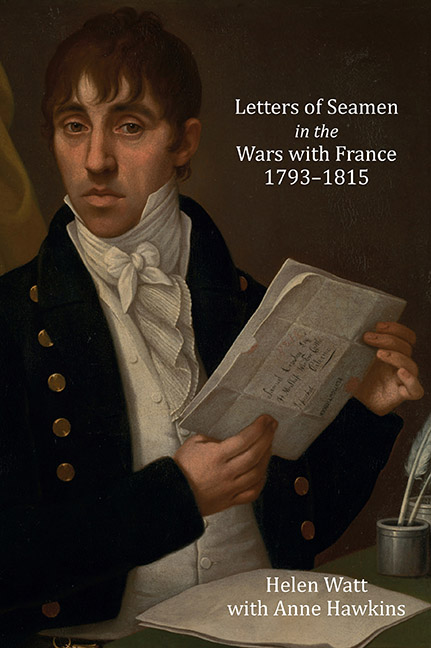Book contents
- Frontmatter
- Dedication
- Contents
- List of Illustrations and Tables
- Foreword
- Preface
- Acknowledgements
- Editorial Conventions
- List of Abbreviations
- Introduction
- Part 1 Thus Dear Father passes the life of a Tar’: Letters of Seamen, 1793–1815
- The Letters A1–194
- Part 2 A great Disturbance among the Fleet’: Letters, Mostly Intercepted, to and from Seamen During the Mutinies in the Royal Navy, 1797
- Letters B1–61
- Conclusion
- Appendix I Biographies
- Appendix II Select Ships Involved in the Mutinies in the Royal Navy, 1797
- Bibliography
- Index
Preface
Published online by Cambridge University Press: 26 May 2021
- Frontmatter
- Dedication
- Contents
- List of Illustrations and Tables
- Foreword
- Preface
- Acknowledgements
- Editorial Conventions
- List of Abbreviations
- Introduction
- Part 1 Thus Dear Father passes the life of a Tar’: Letters of Seamen, 1793–1815
- The Letters A1–194
- Part 2 A great Disturbance among the Fleet’: Letters, Mostly Intercepted, to and from Seamen During the Mutinies in the Royal Navy, 1797
- Letters B1–61
- Conclusion
- Appendix I Biographies
- Appendix II Select Ships Involved in the Mutinies in the Royal Navy, 1797
- Bibliography
- Index
Summary
The eyewitness account is surely one of the most vivid historical sources. Autobiographical sketches, diaries and letters, if written during or shortly after the events they describe and unselfconsciously, without thought of publication, may bring the reader closer to those events than almost any other record. They may also reveal what few other sources can provide: attitudes towards the circumstances in which the writer found him or herself, reactions to them and sometimes even motivations behind them. Such accounts can be very valuable, especially if written during periods of great endeavour or great crisis, for example, in wartime. The letters printed below were written at just such a time, in the French Revolutionary and Napoleonic Wars, and many provide eyewitness accounts of specific episodes during those wars. Some of those episodes include heroic events, such as fleet battles and actions between individual ships, but others occurred during a less glorious time, the mutinies in the Royal Navy in 1797. What makes the letters doubly valuable is that not only are they first-hand accounts, but also that they are first-hand accounts of seamen and Marines, whose letters are apparently very scarce in comparison with letters of commissioned officers. Therefore, the letters give a voice seldom heard elsewhere to some of the many thousands of men serving on board British warships during that time, but whose lives and thoughts are for the most part unknown, apart from bare entries in the records of their employer, such as ships’ Muster and Pay Books.
- Type
- Chapter
- Information
- Publisher: Boydell & BrewerPrint publication year: 2014

